is ++ in c pointer is a kind of operator overloading ,which similar to C++? i wonder how this pointer arithmetic work?
#include <stdio.h>
int main(){
int i[5]={1,2,3,4,5}; int *pi=i;
double f[5]={1.0,2.0,3.0,4.0,5.0}; double *pf=f;
printf("sizeof int:%lu bytes\tsizeof double:%lu bytes\t\n"
,sizeof (int),sizeof (double ));
printf("i[0]: %d \tMemAddress:%p\t\n",*pi,pi);
printf("i[1]: %d \tMemAddress:%p\t\n",*++pi,pi);
printf("f[0]: %f \tMemAddress:%p\t\n",*pf,pf);
printf("f[1]: %f \tMemAddress:%p\t\n",*++pf,pf);
}

